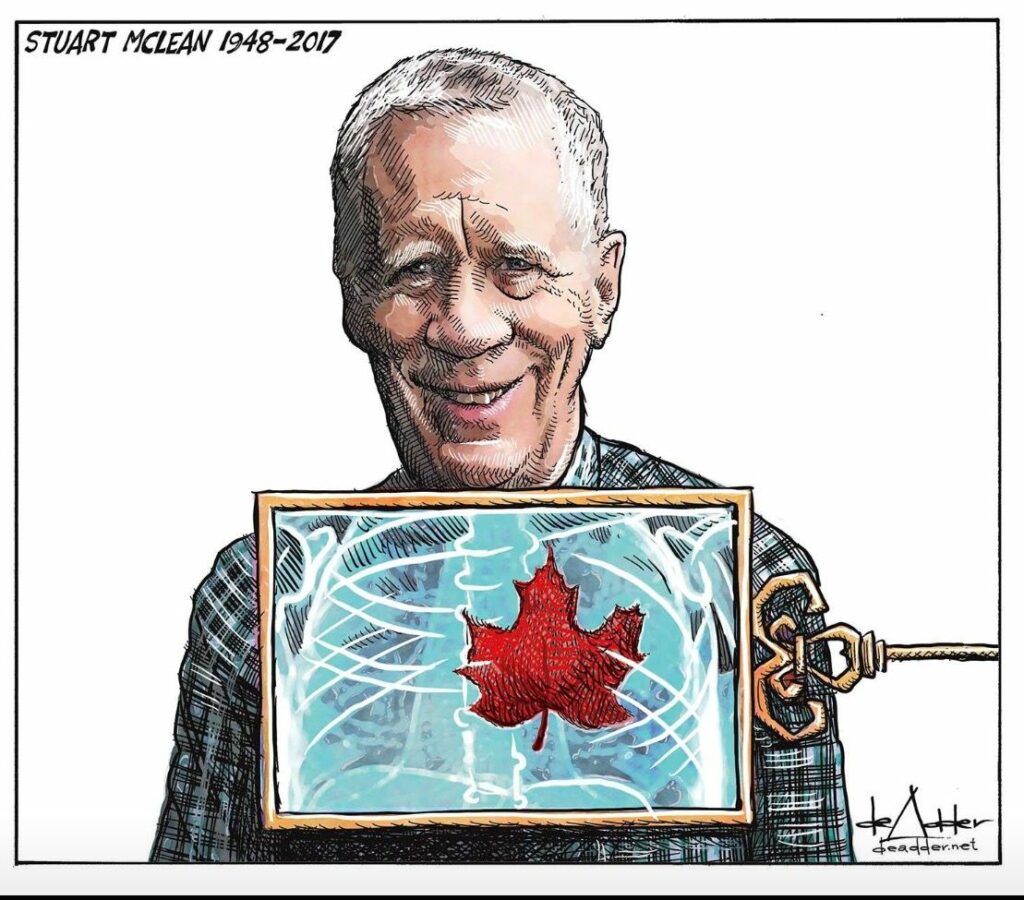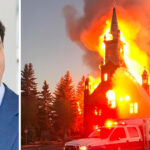Blog Post
Stuart McLean, Vinyl Cafe, and pro-life road trips across Canada
By Jonathon Van Maren
Most Canadians have their Vinyl Café memories. For me, it was coming back from running errands or grocery shopping on Saturday afternoons, when Vinyl Café was on. I’d often end up idling on the driveway in front of my townhouse to finish the latest story, grinning stupidly at my steering wheel. Such was the intimacy and immediacy McLean’s magnificent voice engendered that when he died in 2017, I felt sadness for the storyteller I’d never met—and when the final Dave and Morley story aired months later, it felt like the end of an era, the last hurrah for a public broadcaster that had long since given up representing all of Canada.
Stuart McLean, I would posit, compares only to Pierre Berton in his status as one of Canada’s primary narrators. Liberal, yes—he was on the CBC, after all—but not belligerently so. McLean championed diversity as a Canadian reality rather than as an ideological hobby horse, visiting small towns and their subcultures; forgotten villages and their weird landmarks, local traditions, and peculiar peoples. The “importance of being unimportant,” he liked to say, was Canada’s real story, and his live shows and 1992 book Welcome Home: Travels in Smalltown Canada tell those stories as close to perfect as one can hope to get.
McLean’s stories are so filled with detailed backstories and keen observation of human feelings and foibles that I often wondered if they were true—or at least, partly true. When I had the opportunity to fly to Cape Breton to give a lecture, I took a detour on my way to see the Fortress of Louisbourg to swing through Grand Narrows, upon which Stuart McLean purportedly based Dave’s hometown of Big Narrows, Cape Breton, Nova Scotia. It felt familiar, somehow.
McLean’s voice was a companion for countless Canadians on cross-country road trips, and his cadences, his deliberate pauses, and his audible grins became for many a part of the landscape. I feel a strange kinship with McLean—strange, considering the fact that he saw Canada as the travelling host of a CBC show and I have crisscrossed the country as a pro-life activist. But the reason his work rings so real to me is that so many of his experiences in “real” Canada echo mine, and so many of his ruminations on our small towns perfectly encapsulate my own experiences over the past decade. From Victoria, British Columbia to St. John’s, Newfoundland, I have found what McLean found—although, admittedly, from a different vantage point.








